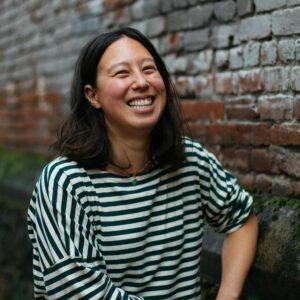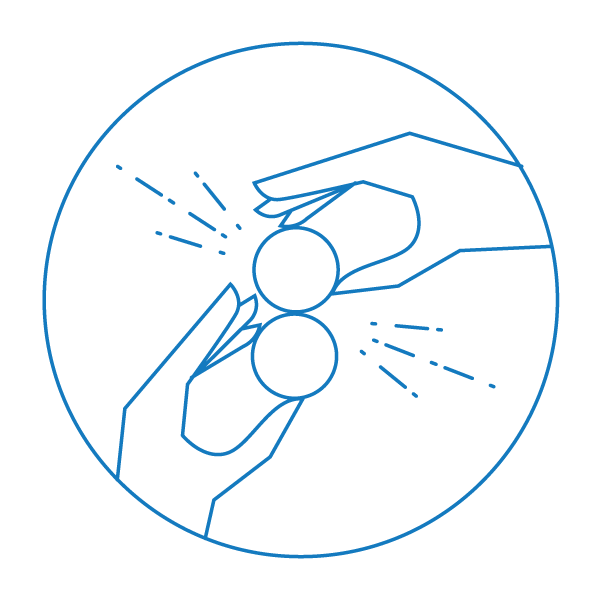
Director of Community Asset Development (CAD)
Eli Marroquin, owner of Portland Pupusas y Taquería, in front of his food truck.
The Powerhouse — a key business support program at the Redd on Salmon Street — is a brick-and-mortar opportunity for minority-owned food businesses. Designed to support a business through a two-year tenancy, participants can access the full suite of resources provided by the Redd campus, as well as ongoing business support. In 2018, the Redd welcomed Eli Marroquin and Portland Pupusas y Taquería as the inaugural Powerhouse participant. In this interview, Redd intern Kaitlyn Rich talks to Eli about his experience so far at the Redd and the inspiration behind his business.

When did you start Portland Pupusas y Taquería?
I started this business in May 2015, making salsas at the Portland Mercado, and selling them in high-end stores. Because the salsas that we are making are all fresh—they don’t have any chemicals—I can’t sell them in big chains because people won’t pay the price.
Last year Ecotrust gave us the opportunity to place a food cart at the corner of 8th and Salmon while the Powerhouse was being renovated. We were in a food cart for six months before coming to the Powerhouse, which is like 1,000 times better than the food cart.
We spent three months of summer and three months of winter in the food cart. When it was hot, it was hot. And when it was cold, there was no place to hide, so it was tough. But we had to start somewhere.
For anybody who is thinking about opening their own food business, it would be a good recommendation to start the way we did it — from the bottom to the top.
Had you started other businesses before?
I had a construction company before Portland Pupusas y Taquería. When I was doing that I just realized that I was taking care of people’s houses, and mine was coming apart. So I had to think about what was going to be better for me. And it was better to close the door on that business. I like doing construction, but I like working with food more.
I have experience working with all kinds of food. When I first came from Guatemala to Portland, I started working in a meat market. You never knew where the meat was coming from. Same for the produce. There is #1 produce, #2 produce. I spent seven years working with low quality meats and produce. Then I spent 14 years working for a company, learning about good food and healthy ways to eat.
When I met Emma, she introduced me to the people with the products that I was looking to use in my business at the Redd. I’m glad that Ecotrust gave me the opportunity to do what I like to do. It feels great.
When did you learn to cook?
I used to make salsa in Guatemala with wood fire and what we call a comal, which is like a clay flat-top. We used that to roast the tomatoes, onion, and garlic.
In Guatemala, my sisters and I were super poor. My mom was working to support five children. So when she was gone working, we had to figure out what to do. Over there, all the fruit and vegetable markets are on the streets. Whatever they were not going to use, they would just toss it. We would wait until all the businesses were closed and pick stuff out of the compost pile, take off the pieces that weren’t good, and cook with the rest. That’s one of the ways that we survived in our childhood.
When I was 12 years old, one of my mom’s friends had a hot dog stand and asked if I wanted to work. At that time, there were no age requirements to work in Guatemala, so I started running the hot dog stand.
So you’ve been in business for a long time. Have there been any big surprises or things you weren’t expecting in running a business?
Yeah, there were a few big surprises. When a person starts a business, it’s a risk because there are payments to be made. You know, house payments, car payments, insurance, licenses, permits—and all that gets to you. There were a lot of surprises. I hope this information helps people that are starting their own business so they know what to expect and not be surprised by it.
What are some of your goals and next steps?
Seven years ago, me and my friend went to Iquitos, Peru, and met a tribe of 21 families on the Amazon River. They’re still walking with no shoes, no clothes, and separate from the other people. We decided to help them out by sending money. They need a boat to go from their tribe’s village to the town to pick up tourists, bring them in, and sell their stuff. Or vice versa, they can take the boat and go and sell their stuff at the nearest town. This is what pushed me all the way into opening the restaurant, helping these people.
About 10 years ago, I wanted to open a restaurant, but I knew that it takes a lot of money to open a restaurant. I decided to begin making salsas at the Portland Mercado as a way of making money to send a percentage to Peru. Someone at the Portland Mercado said to me, “Have you heard about the project at the Redd?” It was Nate from SoupCycle that put me in touch with Emma, who came to visit me at Portland Mercado and invited me to come see the Redd. She brought me to the Powerhouse and said, “This would be a good spot to start a taquería.”
I’m trying to build up a company that will pay well, that will provide good health and dental insurance for me, and the same for the employees. And have enough money that I can help people who need it. When I was a kid, I was always thinking, “Who is gonna come and help us?”
Ecotrust has given us the opportunity to introduce our delicious food, made with locally-sourced products from the Redd in the Powerhouse. We have the opportunity to build up customers so when we get the opportunity to move to a bigger restaurant, there will be enough customers to support this business.
I want to thank Ecotrust and all the staff that has supported me since the beginning.
